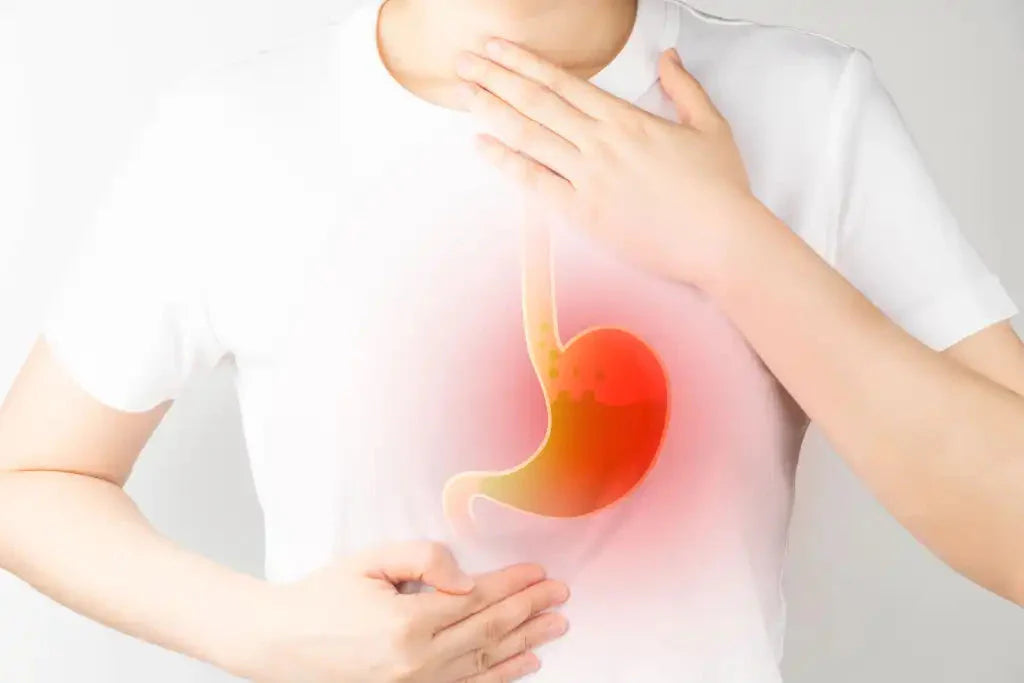
Is GERD dangerous? What is the GERD treatment in India?
Time to read 3 min
Time to read 3 min
In some cases GERD can become dangerous when it is left untreated and there are no changes in diet or lifestyle. Your GERD symptoms can worsen over time, giving you more acid reflux and issues with proper digestion.
It is vital to consult with an gastroenterologist who can correctly verify whether you have GERD, a stomach infection, a medical condition, or other problems. You should also check whether GERD symptoms are aggravating other medical conditions, such as COPD, arthritis, osteoporosis, etc.
The most important thing to do when you suspect that you have GERD is to get a gut test done. Through the gut test, you can determine whether you require medication, treatment, or other interventions. Additionally, your doctor may recommend imaging tests, such as MRI, ultrasounds, etc.
You can also start GERD medication after consulting with your doctor. You can track the progression of the condition through regular testing as well as symptoms monitoring. You can also take symptom medication that is available over the counter for acidity and gas.
You should track these vital signs of GERD so that you're able to understand the progression of the condition. You should also monitor your intake of OTC medicines for phlegm, acidity, etc. so that you're able to get a better sense of your GERD inflammation.
The hoarseness of the throat, as well as the harsh coughing fits, can be classified under GERD cough. You can experience this GERD cough when you are swallowing and may find it hard to speak.
Acidity can be the sign of gastroesophageal reflux disease GERD, which can be due to the irritation of the lining of the esophagus. If you have inflammation or irritation in your esophagus then the risk of acid reflux rises significantly.
In the event that you have headaches that aren't connected to other conditions, then you may want to check for GERD. You can get a gut test done, as well as an MRI or ultrasound, to check for the signs of GERD or other medical conditions.
GERD can irritate the lining of the esophagus which can lead to issues with inflammation. Chronic inflammation and reflux can lead to pain that can be experienced across the body. You may experience severe pain in your neck, chest, back, and legs, as GERD goes unnoticed over time.
The constant exposure to irritation and inflammation, coupled with reflux and headaches, can lead to lower vitality and wellbeing. This can eventually lead to chronic fatigue, wherein you don't feel like you have optimal energy levels.
You can experience stomach pain, which can last for several hours on end. You can also get stomach pain when you're exerting yourself mentally or physically. There may also be the issue of stomach acid going into the esophagus causing a burning sensation in your stomach.
Dry skin, redness, and itching can be connected to GERD. You should check for the signs of GERD as well as get a complete blood test done to know whether there is a deficiency, an issue with reflux, acidity related problem, etc.
The primary approach for a specialist would be to get imaging tests done to check for the signs of GERD and lower esophageal sphincter problems. You would require a complete set of tests done to check is GERD dangerous in your case.
The right way to go about treating GERD when you start experiencing the symptoms is to change your diet. You can introduce fruits, vegetables, grains, and other healthy food items into your diet for a complete transformation of your digestive effectiveness.
Smoking, drinking, and other lifestyle habits would have to change for you to experience relief from GERD symptoms. You would also have to adopt healthier habits, such as walking, yoga, nature trails, etc.
You can introduce probiotics, healthy gut foods, nuts & seeds, and other foods that can help improve the gut functioning. You can improve your gut health focus for long-term enhancements in your digestive health.
Medication can be prescribed if you have spasms, pain, and inflammation in your digestive system. You can consult with your doctor about medication for GERD and how best to improve your digestive health through medications.
Surgical procedures can be recommended when there is severe pain present and there are other issues present. Your doctor can recommend surgical procedures after studying your entire medical history and understanding whether there are other conditions as well.
* * Medical Disclaimer - The following information is for educational purposes only. No information provided on this website, including text, graphic, and images, are intended as substitutes for professional medical advice. Please consult with your doctor about specific medical advice pertaining to your condition(s).


